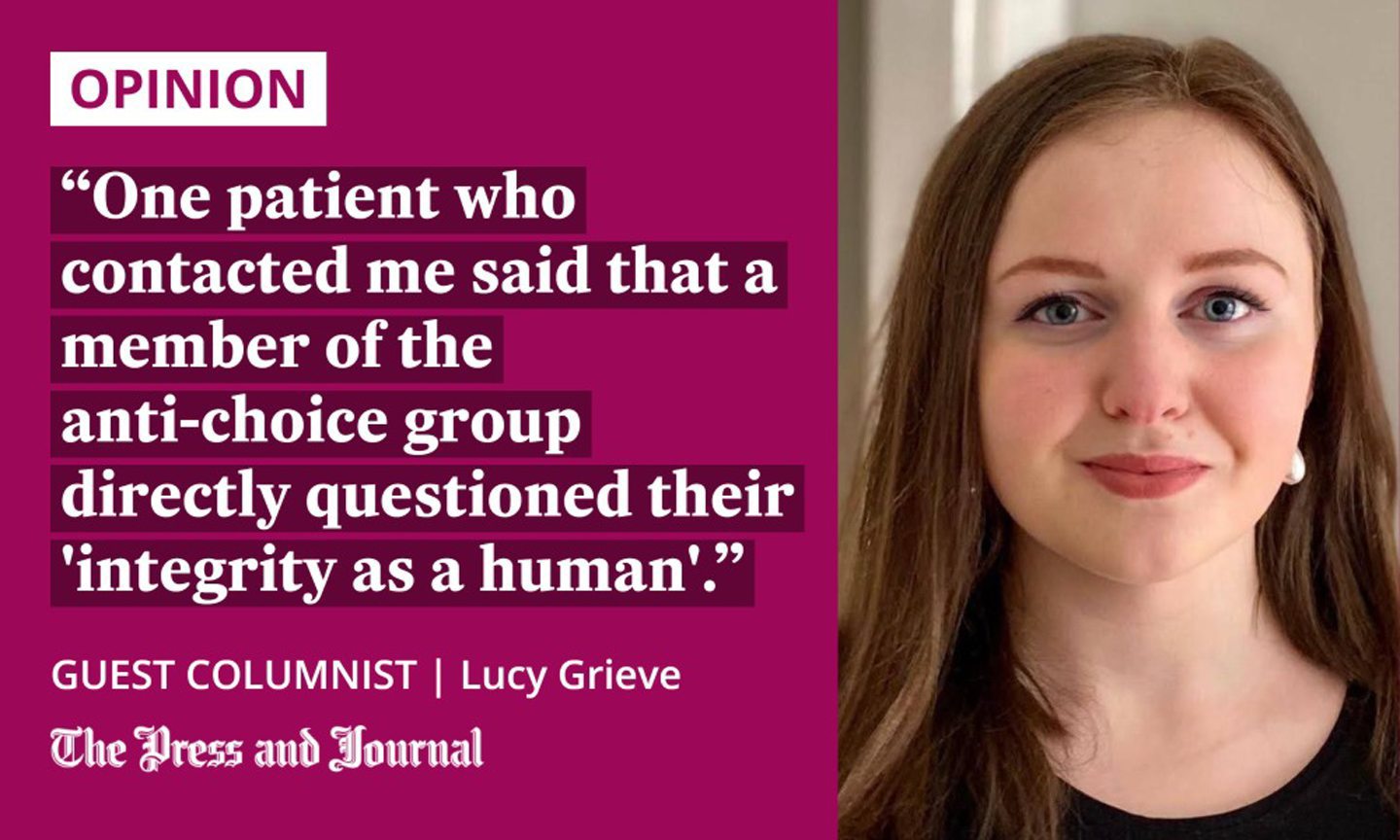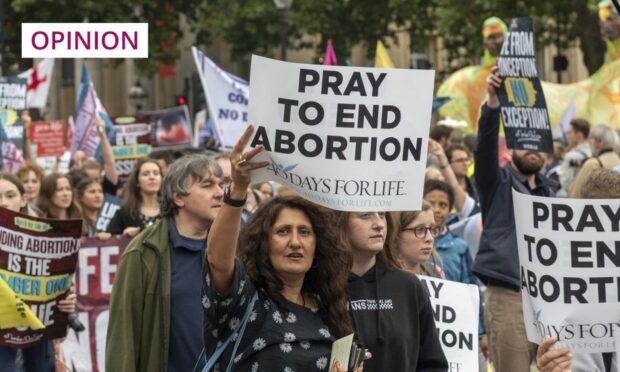Since I started Back Off Scotland – a small, student-run campaign aiming to get harassment-free “buffer zones” implemented around clinics providing abortions – in 2020, I have received hundreds of emails from women, their partners, and clinicians detailing the distress caused by these anti-abortion groups.
These groups have many tactics, often displaying graphic images of dismembered foetuses, handing out factually incorrect leaflets to patients and singing hymns or reciting anti-abortion-themed prayers so loudly that they can be heard inside the clinics or hospitals, to name a few.
One of the most targeted sites in Scotland, according to data collected by the British Pregnancy Advisory Service, is Aberdeen Maternity Hospital.

For over a decade, protestors have been gathering on Cornhill Road outside the hospital to stage 40 days of consecutive protests, twice a year. For those of you familiar with Cornhill Road, you will be aware that it is directly opposite both the hospital and a bus stop popular with those accessing services there.
One patient who contacted me stated that the presence of the group on their way into the hospital caused them “alarm and distress”. Another said that a member of the anti-choice group directly questioned their “integrity as a human”. And, patients are not the only ones facing this harassment – visitors and medical professionals are also affected.
Not only will this harassment continue whilst this bill makes its way through parliament, but the Scottish Government have not yet committed to backing it
Recently, a midwife got in contact with me to convey her outrage at the thought of her patients having to face protestors whilst accessing legal medical care, even expressing worry that the placards of dismembered foetuses may cause trauma.
Government support is only the start – we need action
Across Scotland, it is clear that we are at a critical juncture. It is welcome news that Gillian Mackay MSP launched her bill in the Scottish Parliament last week (you can fill in the public consultation at bufferzones.scot), and that First Minister Nicola Sturgeon has said that she “strongly supports” the implementation of buffer zones, but there is still much to be done.
Not only will this harassment continue whilst this bill makes its way through parliament, but the Scottish Government have not yet committed to backing it.
Yesterday I launched a consultation on my proposed members bill to introduce protest-free buffer zones outside clinics that provide abortion services.
▶️Sign our petition and tell Parliament it's time to act: https://t.co/I0TpwTxzfZ pic.twitter.com/iKTeL6wI9J
— Gillian Mackay MSP (@GillianMacMSP) May 20, 2022
Closer to home, NHS Grampian chief executive Caroline Hiscox has refused to put her weight behind patients who have come out publicly to share their experiences of harassment, and has ignored our request for a meeting for months.
It is abundantly clear that anti-choice demonstrations outside clinics and hospitals leave patients and staff feeling harassed, alarmed, and distressed.
It is important that we continue to listen to those being affected, and I would be grateful to hear from anyone who has experienced this firsthand. If this is you, please reach out to me on contact@backoffscotland.com.
Lucy Grieve is co-founder of Back Off Scotland


Conversation